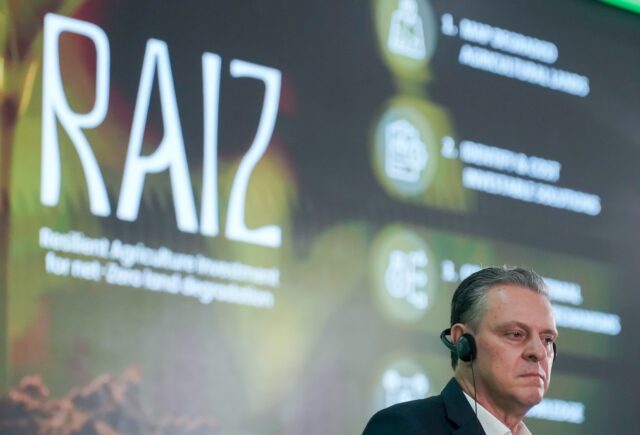The impact investment manager is targeting the funding gap for SMEs in emerging markets with its latest product, the BlueOrchard Impact Credit Fund.

BlueOrchard has launched an Impact Credit Fund with a focus on bolstering finance for small and medium-sized enterprises (SMEs) and digital inclusion in emerging markets.
The semi-liquid, open-ended fund aims to attract investments totalling around $200m-$400m (€183.7m-€367m) over the next 12-18 months in a multi-credit portfolio, with a view to providing an “attractive” risk-adjusted return for investors. It is classified as an Article 9 fund under the EU Sustainable Financial Directive Regulation (SFDR).
The strategy targets investments in smaller financial institutions providing social and environmental development benefits. Areas covered include SME lending, digital payment solutions, renewable energy, energy efficiency and climate adaptation solutions. Most investments are likely to be made in Asia and Latin America, where BlueOrchard has its strongest presence, as well as other regions including Africa.
The Zurich-based investment manager identifies three “megatrends” in emerging markets that it aims to address with the fund – the important role of SMEs and micro enterprises in driving growth and job creation, digitalisation of financial services and the increasing opportunities in green financing, such as decarbonising transport.
“There is funding for individual loans and microfinance, and funding for large bankable institutions, but in between there is a real gap in SME funding and it is that gap we want to help fill,” Philipp Mueller, BlueOrchard’s CEO told Impact Investor.

Mueller points to World Bank data suggesting the financing gap for micro, small and medium-sized enterprises (MSMEs) is around $5trn and that around 40% of registered MSMEs have unmet financing needs.
By investing in financial institutions that provide loans to SMEs and by investing directly in companies, the fund also hopes to help reduce the number of people without bank accounts, estimated to be around 1.4 bn globally.
Diversification opportunity
He said the fund was complementary to BlueOrchard’s other offerings and that it presented diversification opportunities for investors that traditionally do not have a large exposure to SME-related areas of financial inclusion.
BlueOrchard, in which Schroders Group owns a majority stake, launched a private equity fund in 2022 to help develop financial services for people with low incomes, focusing mainly on Asia and Africa. In early 2023, it announced the first close of a $250m blended finance initiative, the Green Earth Impact Fund (GEIF), in partnership with Schroders, and Luxembourg’s finance ministry. Across all its platforms, the investment manager carried out 195 transactions in 2022, with an average size of $5.5m-$7m.
While the majority of the Impact Credit Fund will go to indirect lending via local partner financial institutions, around 20%-25% of funds will be allocated as direct lending to medium-sized businesses with significant roles in their market segments that can help develop the re-financing market for SMEs.
Mueller said the fund planned to build on the investment manager’s existing portfolio of investment in fintech and digital lending. As an example of the type of lending targeted, he cited a BlueOrchard investment in a company enabling remittances between people across several African countries, which otherwise would have gone through regular channels where intermediaries take a significant cut.
“Many of our investment professionals in regional offices started out in direct lending activities, so these teams already have a lot of know how when it comes to areas such as direct lending and have in recent years built the know how to assess digital solution providers,” Mueller said.






